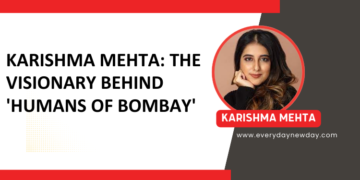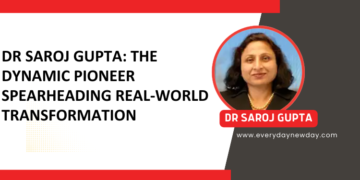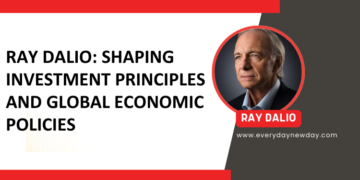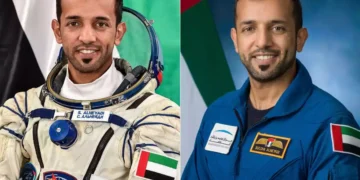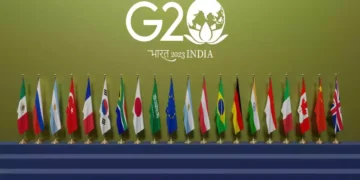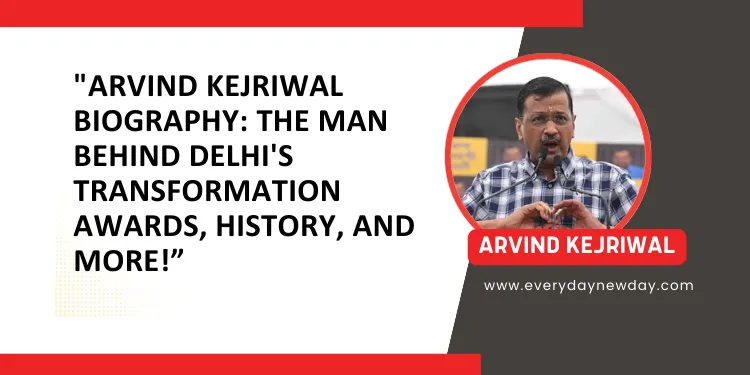Arvind Kejriwal was born on August 16, 1968, in Siwani, a small town in the Bhiwani district of Haryana, India. He grew up in a middle-class family, with his father being an electrical engineer. Kejriwal’s early education took place in various towns, reflecting his father’s job transfers. He later moved to Hisar for his higher education and completed his schooling at Campus School. Kejriwal then pursued Mechanical Engineering at the prestigious Indian Institute of Technology (IIT) Kharagpur, where he graduated in 1989.
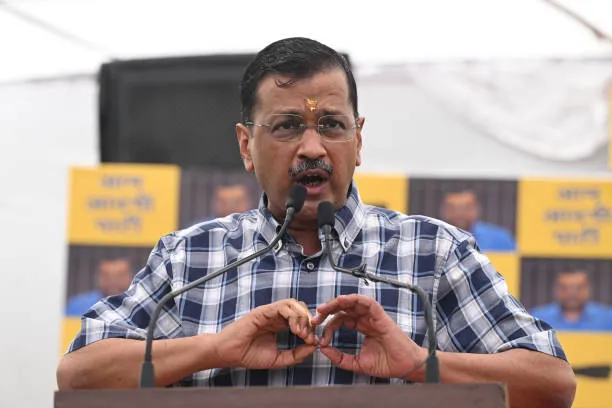
Career as a Civil Servant
Kejriwal joined the Indian Revenue Service (IRS) in 1995 after clearing the highly competitive Civil Services Examination. As an IRS officer, he was assigned to the Income Tax Department. However, his tenure in the IRS was marked by a deep sense of dissatisfaction with the prevailing corruption and inefficiency within the system. This dissatisfaction eventually led him to take a two-year leave of absence to focus on his passion for social activism and reform.
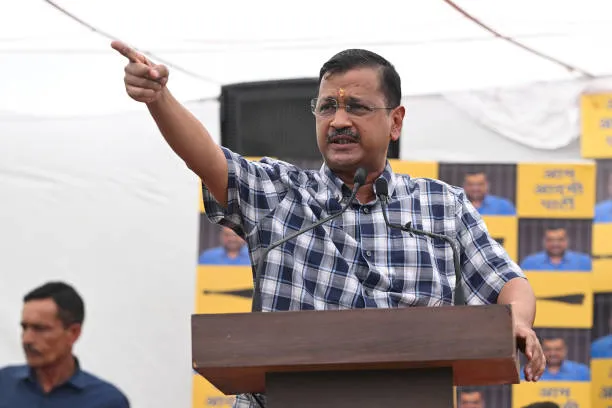
Transition to Social Activism
In 2000, Kejriwal founded Parivartan, an NGO aimed at assisting citizens in navigating the bureaucratic maze to secure their rights and entitlements. Parivartan was instrumental in exposing corruption within the public distribution system and the income tax department. Kejriwal’s work with Parivartan laid the groundwork for his future endeavors in transparency and accountability in governance.
The Right to Information Movement
Kejriwal’s significant contribution to the Right to Information (RTI) movement in India earned him national recognition. He worked alongside social activists like Anna Hazare and Aruna Roy to push for the implementation of the RTI Act, which was eventually enacted in 2005. His efforts in promoting transparency and accountability in governance were acknowledged with the Ramon Magsaysay Award for Emergent Leadership in 2006.
The Genesis of Aam Aadmi Party
Kejriwal’s frustration with systemic corruption and his commitment to social justice culminated in the formation of the Aam Aadmi Party (AAP) in 2012. The party’s primary agenda was to combat corruption and bring about political reform. In 2013, AAP contested the Delhi Legislative Assembly elections and emerged as a significant force, securing 28 out of 70 seats. Kejriwal’s promise of delivering clean governance resonated with the electorate.
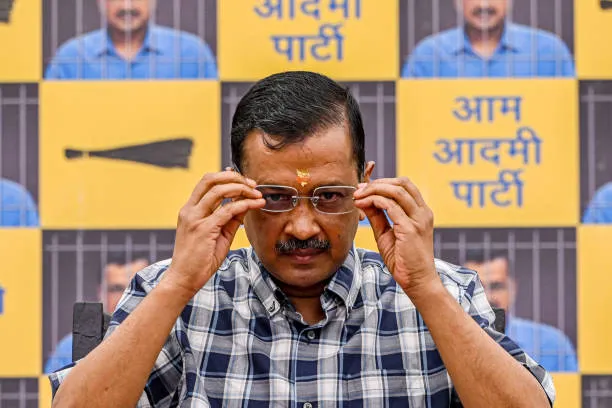
Chief Minister of Delhi
- Kejriwal’s first tenure as the Chief Minister of Delhi began on December 28, 2013. However, his government lasted only 49 days, as he resigned in February 2014 over the non-passage of the Jan Lokpal Bill, an anti-corruption legislation. Despite the brief tenure, his government made significant strides in providing free water and subsidized electricity to Delhi’s residents.
- Kejriwal returned to power with a decisive mandate in the 2015 Delhi Assembly elections, with AAP winning 67 out of 70 seats. His administration focused on key areas such as education, healthcare, and infrastructure. Notable initiatives included the Mohalla Clinics for accessible healthcare, improvements in public schools, and the installation of CCTV cameras for enhanced security.
- In the 2020 Delhi Assembly elections, Kejriwal was re-elected with another overwhelming majority, securing 62 out of 70 seats. His administration continued to emphasize social welfare schemes and infrastructure development.
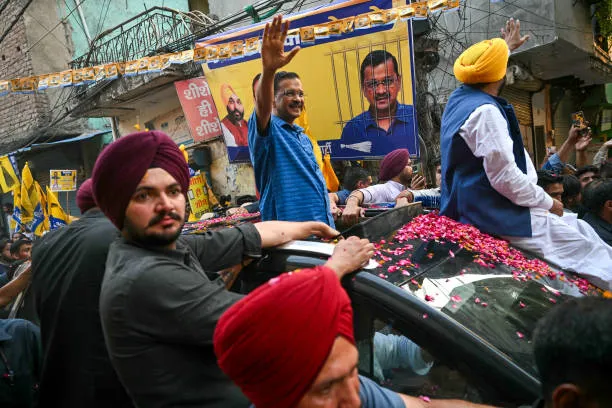
Key Achievements and Reforms
Education Reform: Under Kejriwal’s leadership, Delhi’s government schools have seen a significant transformation. Investments in infrastructure, teacher training, and curriculum improvement have led to higher pass percentages and overall better performance of students.
Healthcare Initiatives: The introduction of Mohalla Clinics has brought primary healthcare to the doorstep of Delhi’s residents. These clinics provide free medical consultation, medicines, and diagnostics, benefiting millions of people.
Water and Electricity Subsidies: Kejriwal’s government has implemented policies to provide free water and subsidized electricity to the citizens of Delhi, easing the financial burden on low and middle-income households.
Public Transportation: Initiatives such as free bus rides for women and the expansion of the Delhi Metro network have improved public transportation in the city.
Legal Challenges and Controversies
Kejriwal’s political journey has not been without challenges and controversies. He has faced numerous legal battles, including defamation cases and investigations by the Enforcement Directorate (ED). His outspoken nature and aggressive stance against corruption have often put him at odds with political opponents and the central government.
Personal Life
Arvind Kejriwal is married to Sunita Kejriwal, an IRS officer, and the couple has two children, a daughter named Harshita and a son named Pulkit. Despite his demanding political career, Kejriwal is known to be a family man who values his private life.
Social Media Presence
Kejriwal is an active user of social media, particularly Twitter, where he engages with the public, shares updates on policies, and addresses current issues. His social media presence has been instrumental in mobilizing support and communicating directly with the citizens.
A Glimpse into Arvind Kejriwal’s History: From IRS Officer to Political Leader
Arvind Kejriwal’s biography is a testament to his dedication and resilience. Before entering politics, Kejriwal was an Indian Revenue Service (IRS) officer. He is an alumnus of the Indian Institute of Technology (IIT) Kharagpur, where he studied Mechanical Engineering. His journey from a civil servant to a political leader is truly inspiring.
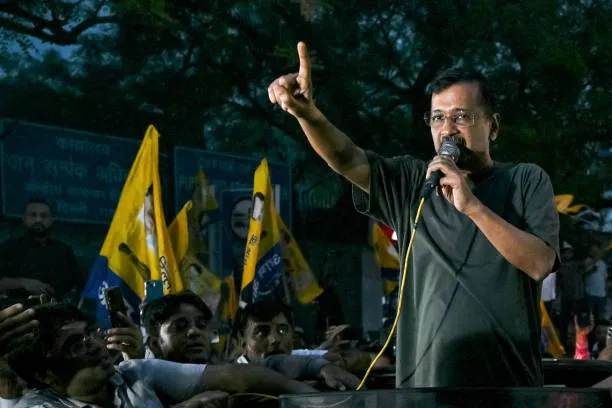
Arvind Kejriwal’s UPSC Rank and IAS Status
Many people are curious about Arvind Kejriwal’s UPSC rank and whether he is an IAS officer. Kejriwal cleared the UPSC exam and joined the IRS, which is different from the IAS. Although he is not an IAS officer, his contributions to public service have been significant.
Delhi’s Dynamic Leader: Arvind Kejriwal’s Impact!
As the Chief Minister of Delhi, Arvind Kejriwal has implemented several reforms to improve the quality of life for Delhi’s residents. His initiatives in education, healthcare, and infrastructure have made a significant impact on the city’s development.
Arvind Kejriwal and the ED Case: Legal Challenges
Arvind Kejriwal has faced several legal challenges, including cases investigated by the Enforcement Directorate (ED). These cases often draw significant media attention, highlighting the legal battles faced by political leaders.
Conclusion
Arvind Kejriwal’s journey from a civil servant to a social activist and then to the Chief Minister of Delhi is a story of resilience, dedication, and a relentless pursuit of justice and transparency. His governance model, focusing on education, healthcare, and social welfare, has set new benchmarks for other states in India. Despite facing numerous challenges and controversies, Kejriwal continues to be a significant force in Indian politics, driven by his vision of a corruption-free and equitable society.
Frequently Asked Questions about Arvind Kejriwal
1. Who is Arvind Kejriwal?
Ans: Arvind Kejriwal is the current Chief Minister of Delhi and the national convener of the Aam Aadmi Party (AAP). He is known for his activism against corruption and his efforts to improve public services in Delhi.
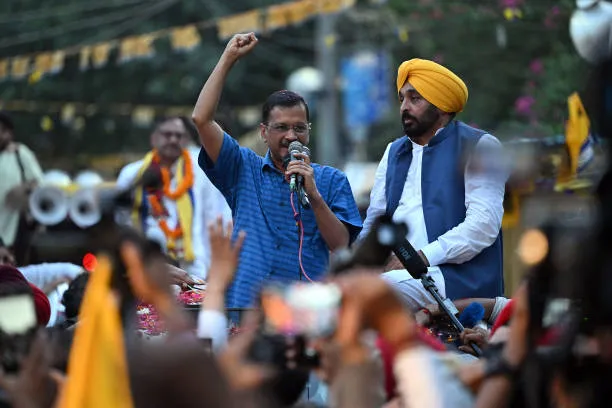
2. What is Arvind Kejriwal’s educational background?
Ans: Arvind Kejriwal graduated with a degree in Mechanical Engineering from the Indian Institute of Technology (IIT) Kharagpur in 1989.
3. What awards has Arvind Kejriwal received?
Ans: Arvind Kejriwal received the Ramon Magsaysay Award for Emergent Leadership in 2006 for his work in the Right to Information movement.
4. Is Arvind Kejriwal an IAS officer?
Ans: No, Arvind Kejriwal is not an Indian Administrative Service (IAS) officer. He served as an Indian Revenue Service (IRS) officer before entering politics.
5. What is the Aam Aadmi Party?
Ans: The Aam Aadmi Party (AAP) is a political party in India founded by Arvind Kejriwal and his colleagues in 2012. The party’s primary focus is on anti-corruption and good governance.
6. What are some of Arvind Kejriwal’s major achievements as Chief Minister?
Ans: Some of Arvind Kejriwal’s major achievements include the establishment of Mohalla Clinics for primary healthcare, significant improvements in the quality of government schools, providing free water and subsidized electricity to residents, and introducing free bus rides for women in Delhi.
7. How many times has Arvind Kejriwal been elected as the Chief Minister of Delhi?
Ans: Arvind Kejriwal has been elected as the Chief Minister of Delhi three times: in December 2013, February 2015, and February 2020.
8. What is Arvind Kejriwal’s role in the Right to Information (RTI) movement?
Ans: Arvind Kejriwal played a crucial role in the Right to Information movement in India, which led to the enactment of the RTI Act in 2005. He worked to promote transparency and accountability in governance.
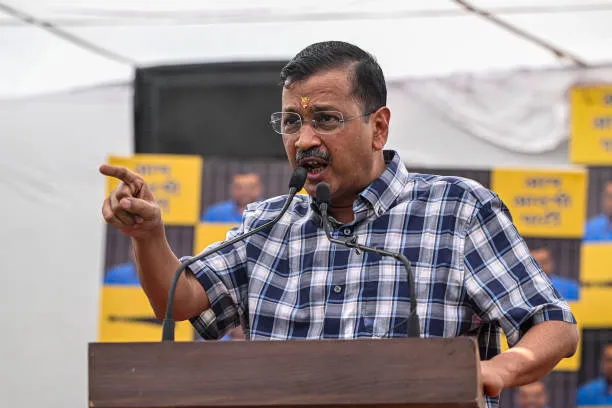
9. What legal challenges has Arvind Kejriwal faced?
Ans: Arvind Kejriwal has faced several legal challenges, including defamation cases and investigations by the Enforcement Directorate (ED). These challenges often stem from his outspoken stance against corruption and political opponents.
10. Where does Arvind Kejriwal live?
Ans: Arvind Kejriwal resides in Delhi, where he serves as the Chief Minister. His residence is a place where many significant political decisions are made.
11. What is Arvind Kejriwal’s presence on social media?
Ans: Arvind Kejriwal is active on social media, especially Twitter, where he communicates with the public, shares policy updates, and addresses current issues.
12. Who is Arvind Kejriwal’s family?
Ans: Arvind Kejriwal is married to Sunita Kejriwal, an IRS officer. They have two children, a daughter named Harshita and a son named Pulkit.
13. What is Arvind Kejriwal’s vision for Delhi?
Ans: Arvind Kejriwal’s vision for Delhi includes improving public services such as education, healthcare, water, and electricity, promoting transparency and accountability in governance, and making Delhi a safer and more inclusive city for all its residents.
14. What controversies has Arvind Kejriwal been involved in?
Ans: Arvind Kejriwal has been involved in various controversies, often related to his aggressive anti-corruption stance, clashes with political opponents, and legal battles. Despite these challenges, he continues to be a prominent figure in Indian politics.
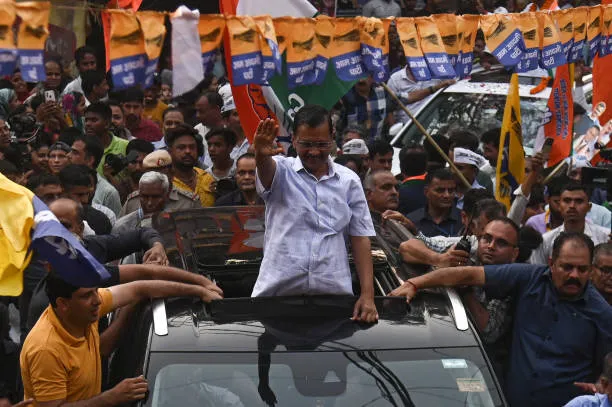
15. How has Arvind Kejriwal contributed to education reform in Delhi?
Ans: Under Arvind Kejriwal’s leadership, Delhi’s government schools have seen significant improvements in infrastructure, teacher training, and curriculum, leading to higher student performance and pass rates.
How Arvind Kejriwal Stays Effective in His Political Career!
Arvind Kejriwal maintains his effectiveness in politics through disciplined routines and strategic thinking. He starts his day with yoga and meditation, ensuring physical health and mental clarity. A balanced diet rich in nutrients supports his energy and stamina for long work hours. Kejriwal stays updated with the latest in governance and public policy, applying innovative solutions to Delhi’s challenges. Techniques like visualization and mindfulness enhance his focus and decision-making abilities. He engages directly with the public through social media and town hall meetings, fostering transparency and addressing citizen concerns promptly. Rest and team collaboration are key; he ensures adequate sleep and promotes a supportive work environment to achieve his administration’s goals efficiently.

“Looking for a daily dose of inspiration? Visit www.everydaynewday.com! We bring you powerful stories of motivational people from all walks of life. Whether you’re seeking to kickstart your day with positivity or need a boost to chase your dreams, we’ve got you covered. Join us and get inspired every day!”










